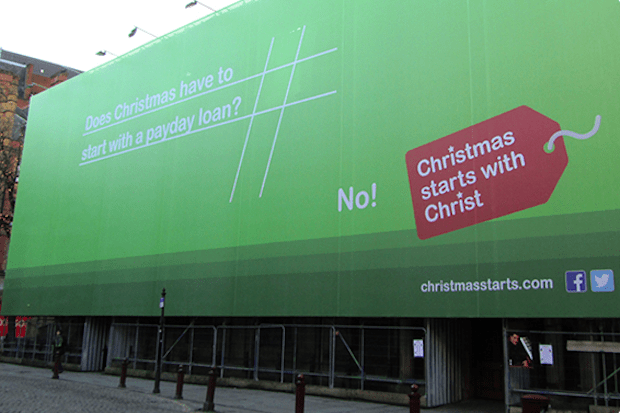Does Christmas have to start with a payday loan? No, according to the Church of England. The Church has unveiled its annual advertising campaign this morning, posing this very question to the residents of Manchester.
As usual, the CofE is worried Britons are becoming ignorant about the origins of Christmas. As one of the adverts (pictured above) from Christmas starts with Christ shows, the aim is to remind Britain of the religious nature of the festive season as well as urging people not to go into debt to finance Christmas.
But are the payday loan companies the only companies the Church should be worried about? In a recent Barometer column, we compared the cost of borrowing of £200 from Wonga to the high street banks. If you happen to stumble into an unarranged overdraft, the APR figures are just as bad:
APR isn’t a fair comparison for payday lenders. The metric is designed to show interest compounding over a year. But a Wonga loan for example cannot compound for more than two months. It’s just that all lenders in Britain have to state their APR.
As well as the banks, many of the shops have high APRs. Littlewoods offers an APR of 36.9 per cent over two/three years, while the weekly payments store Brigthouse’ APR comes in at 69.9 per cent.
Earlier this year, Archbishop Justin Welby said he hoped the Church would put the payday loan lenders out of business and ‘defeat them by competing them out of business’ with his own chain of credit unions. Maybe Welby also needs to consider that the regular high street banks and shops can be just as guilty of huge lending rates?






Comments